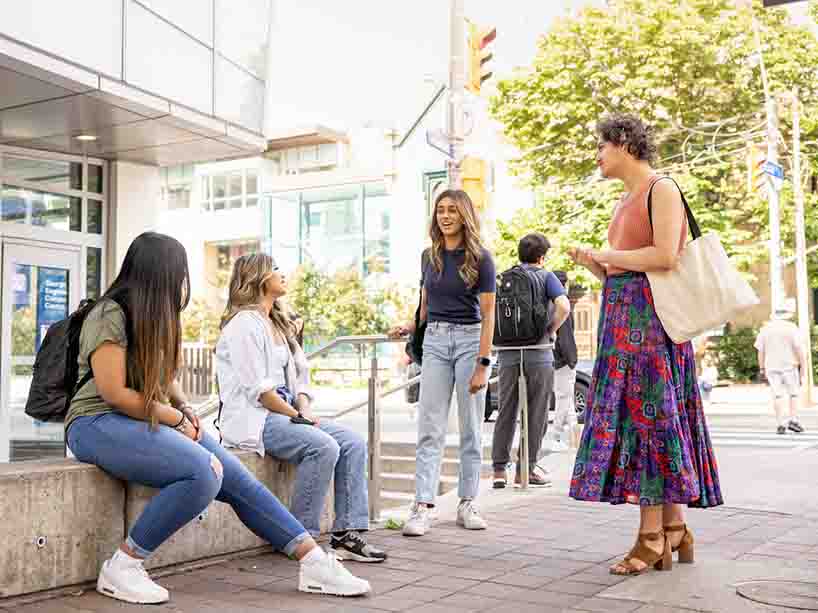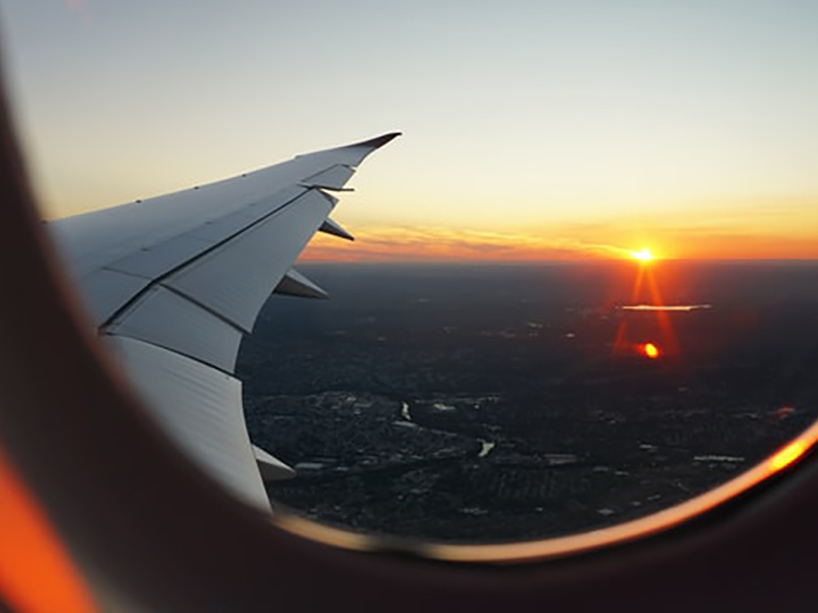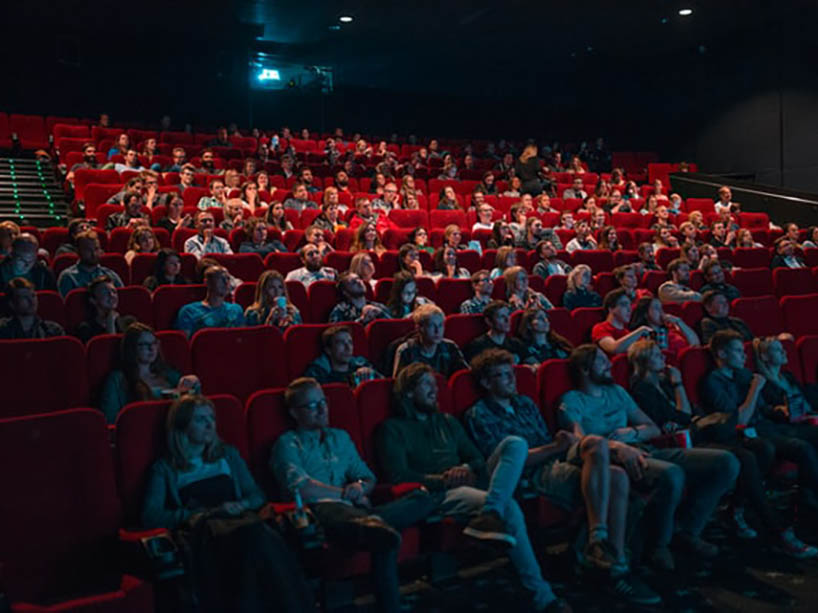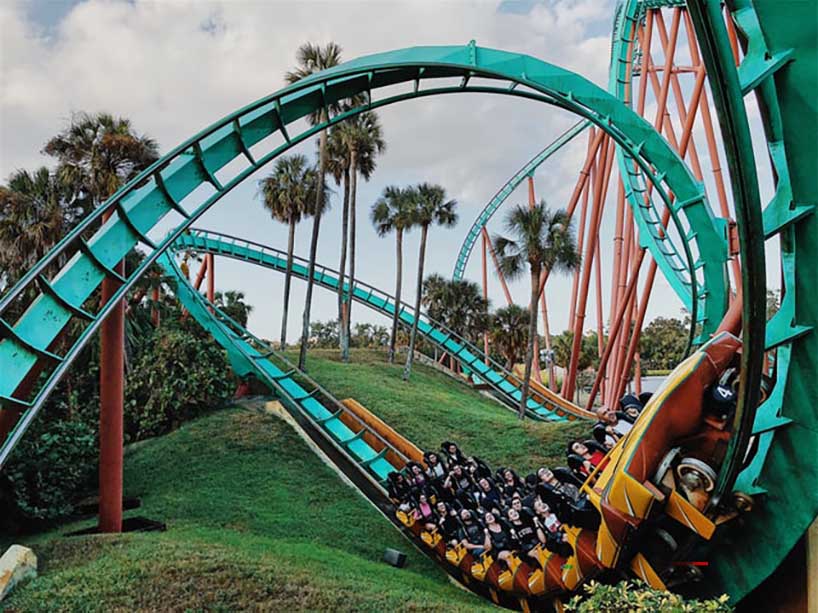TMU professors give the lowdown on how to have an awesome summer

Keep these tips in mind this summer
A few weeks into summer and it’s safe to say this year is slowly getting back to what we were used to pre-COVID. More people are travelling, the parks and beaches are open and summer blockbusters are once again drawing in crowds.
But before you jump in, check out these top tips we gathered from TMU professors who are subject matter experts in their fields to help ensure a seamless summer.

Make sure you prepare yourself for long waits and delays when you’re travelling. Photo credit: Eva Darron
Stay flexible and plan ahead when you travel
After two summers of travel restrictions, people are packing their bags, boarding planes and setting off to far flung destinations.
The eagerness to travel again is no surprise, says Frederic Dimanche, director at the Ted Rogers School of Hospitality and Tourism Management. Dimanche has published numerous tourism-related research articles and has co-authored a book on hospitality management. Travel, he says, is an opportunity to break away from our daily routine and even connect with friends and family elsewhere.
Although it may be tempting to run excitedly to the airport with reckless abandon, Dimanche warns it is best to prepare yourself for delays and cancelled flights. Demand may be rebounding, but the travel industry has not been able to bring back enough workers to accommodate the influx of passengers.
As a traveller, Dimanche says passengers should recognize the flight crew’s hard work to fly, host and welcome you abroad. He also says being flexible and patient can go a long way – bring a good book and be prepared to wait if you do encounter delays.
If you are travelling with children, make sure you are planning ahead and engaging them in the planning process, says Rachel Dodds, professor at the Ted Rogers School of Hospitality and Tourism Management and author of a recently released book (external link) about sustainable tourism. As individuals but especially as parents, it is good to be prepared with chargers for electronic devices, snacks, water and other items that will allow you to not only distract your children but help you save money and stress less.
Dodds also encourages everyone to consider how they can travel more sustainably. All forms of travel have an impact but even small efforts such as trying to fly direct, using public transit, bringing your own water bottle and staying in locally owned accommodations can limit your environmental impact and ensure more money goes into the local economy.
Use sunscreen and seek shade
We’ve heard it before, but during the long days of summer it’s easy to forget to apply sunscreen while you’re out on a patio or lounging in a pool. Thomas Tenkate, associate professor at the School of Occupational and Public Health who has done extensive research on sun safety, says this is too important to ignore. The precursor to skin cancer is getting sunburnt - the more you burn, the higher the risk of skin cancer.
Tenkate says it’s important to not only wear sunscreen - and reapply at regular intervals if out for an extended period - but also cover up with lightweight fabrics. This means wearing hats and longer sleeves that have a breathable design. Keeping children safe in the sun is key to decreasing their risk of developing skin cancer when they are older.
Climate change has also influenced the levels of UV radiation we receive, Tenkate says, with these changes continuing to interact in complex ways to influence skin cancer risk.
Around the middle of the day, when the sun’s UV rays are the strongest, it is important to avoid prolonged exposure to UV. Besides taking personal steps such as covering up or applying sunscreen, plan activities for early morning or late afternoon. If this isn’t possible, Architectural Science Professor George Kapelos suggests finding shade, whether that be natural shade provided by trees or through built structures such as pergolas or pavilions.
Kapelos leads a working group with the Toronto Cancer Prevention Coalition that promotes shade policy and design as part of larger city planning and public health initiatives. The group has worked with the parks, forestry and recreation division at the City of Toronto to find the best places in parks and recreation areas to put shade structures. In his own work, Kapelos has led a number of design studios where students have proposed movable and interactive shade structures that respond to user needs and local environmental conditions.

Movies are back in full swing and blockbuster successes like Top Gun prove it! Photo credit: Krists Luhaers
Snag a seat online before heading to the movies
At the height of the pandemic, we were all streaming movies and shows at home. Now, in-person movie watching is making a comeback, says Sociology Professor Paul Moore. The phenomenal success of Top Gun shows that people are excited to be in a crowd with strangers experiencing the energetic thrill of watching a new movie on the big screen.
As more people are choosing to go see a movie in person, Moore says a post-pandemic trend that will likely stick is paying extra to choose a seat. This change allows people to feel more comfortable about where they will sit, without having to arrive early for a good seat.
Another trend accelerated by the pandemic is the idea of integrating multiple experiences with the movie to make it a night out. Moore sees movie theatres becoming the centrepiece of many leisure and entertainment destinations, forming something akin to small, local amusement parks that offer fun and appealing options for the whole family. In his work, Moore argues that amusement and leisure help constitute modern publics by providing spaces, rhetorics and logics for collective gathering.

Enjoy roller coaster rides while making sure you are following the safety rules. Photo credit: Matt Bowden
Stay safe at amusement parks
Movie theatres are filling up and so are amusement parks. Centreville’s doors are open for the season, while The Ex is scheduled to run at the end of August for the first time since 2020.
While worrying about safety might seem counterintuitive for thrill-seekers, staying safe ensures the day stays fun. Kathryn Woodcock, Professor at the School of Occupational and Public Health, is passionate about applying her expertise in human factors engineering to amusement attractions.
Woodcock says it’s important to follow the instructions for the use of the rides. They are often posted, announced by the operator, or communicated directly to the rider by the operator. The ride’s level of safety is based on riders following these directions and the experience could become unsafe if riders improvise their behaviours.
Woodcock stresses that parents should be sure that children have the supervision they need to manage their behaviour, as they may behave impulsively and base their reactions on what seems possible at the time.
She also says that the eligibility requirements for the ride should be posted or available by asking the operator. People who are unsure if a ride is right for them should not hesitate to ask guest relations, as they may have more information that the individual operator at the attraction may not have.
People shouldn’t overlook safety at water-based amusement parks. Waterparks, wave pools, lazy rivers and waterslides are refreshing on a hot summer day but require the same swimming skills and parental supervision as any swimming pool.
Related stories: